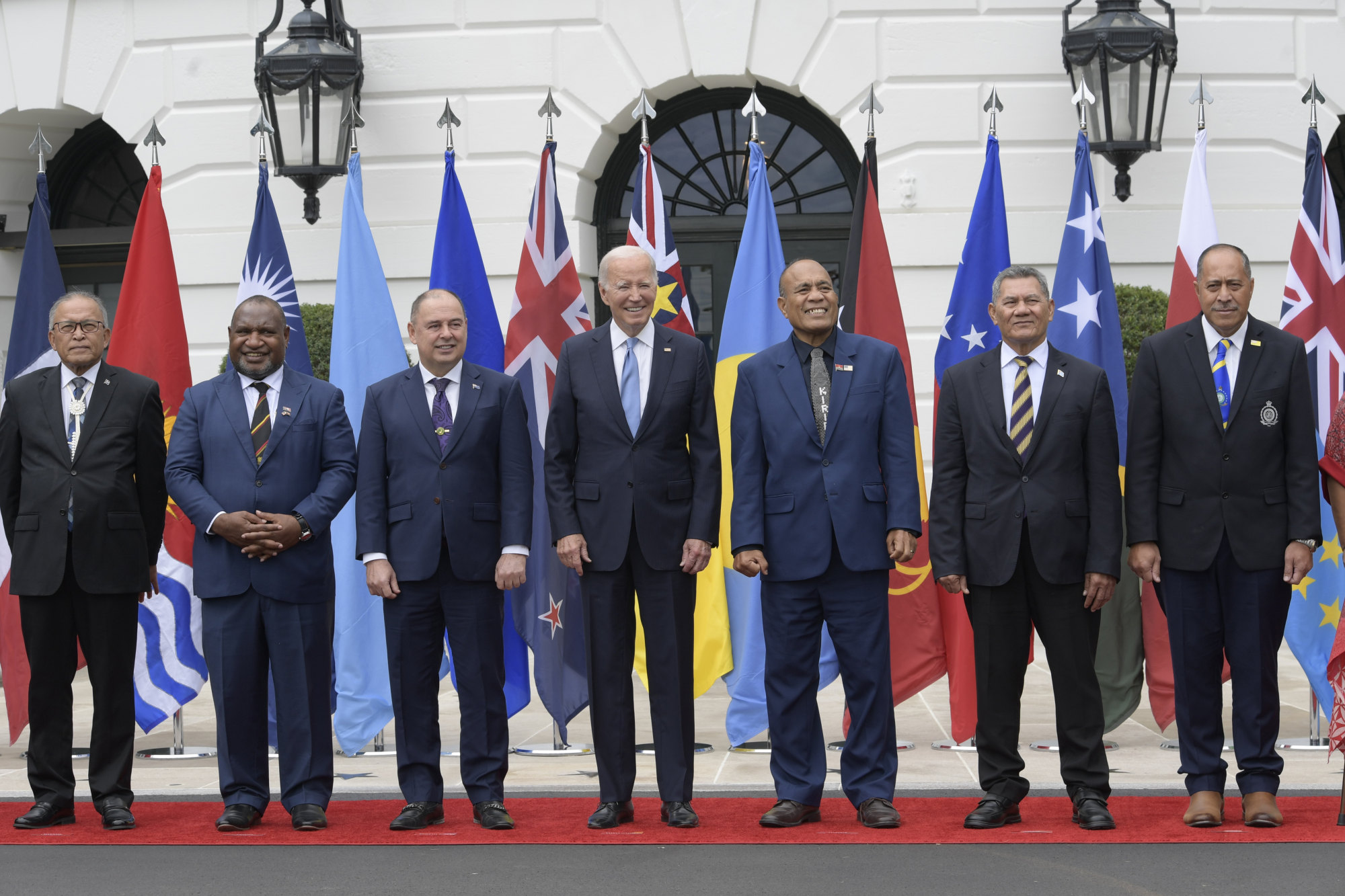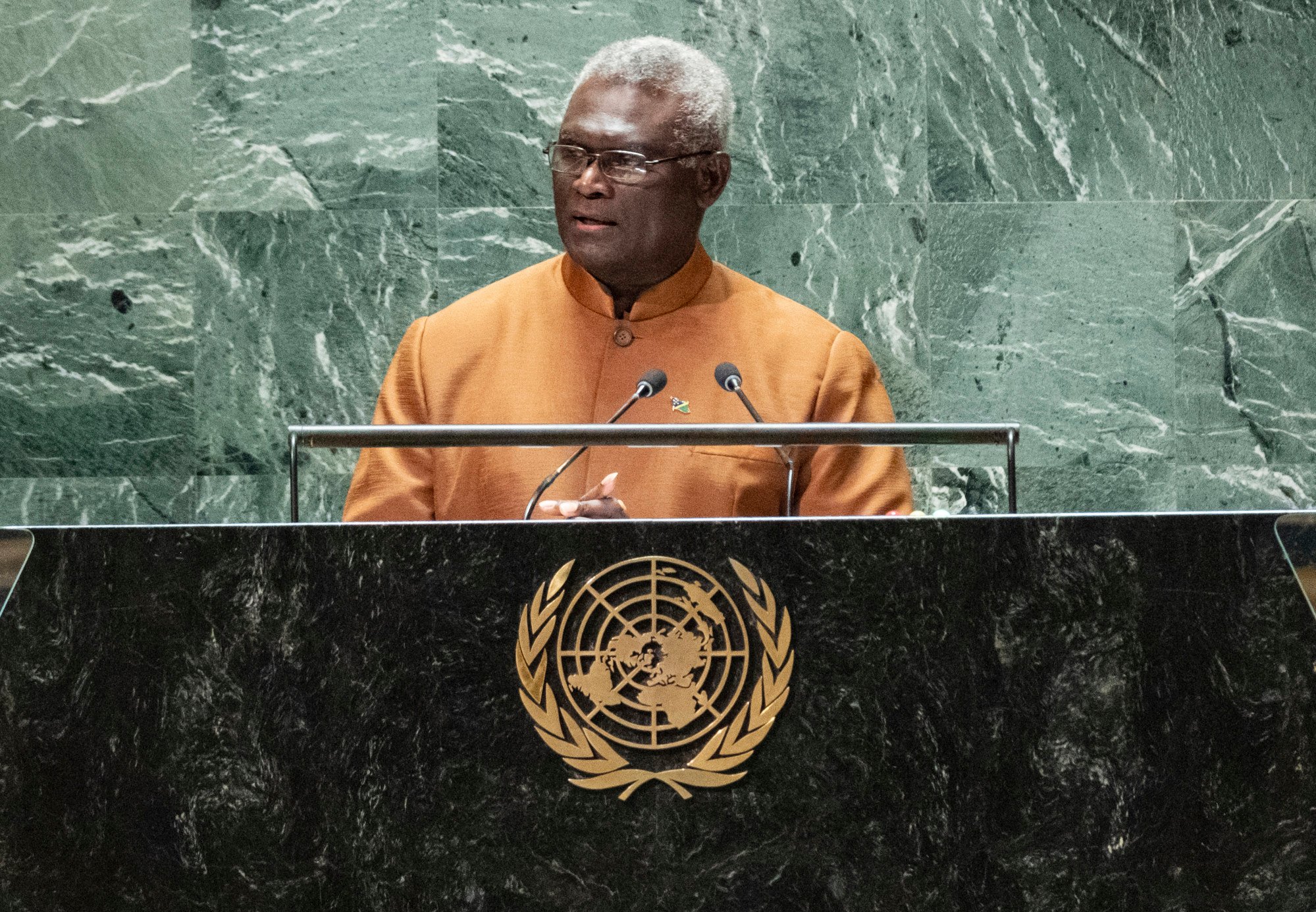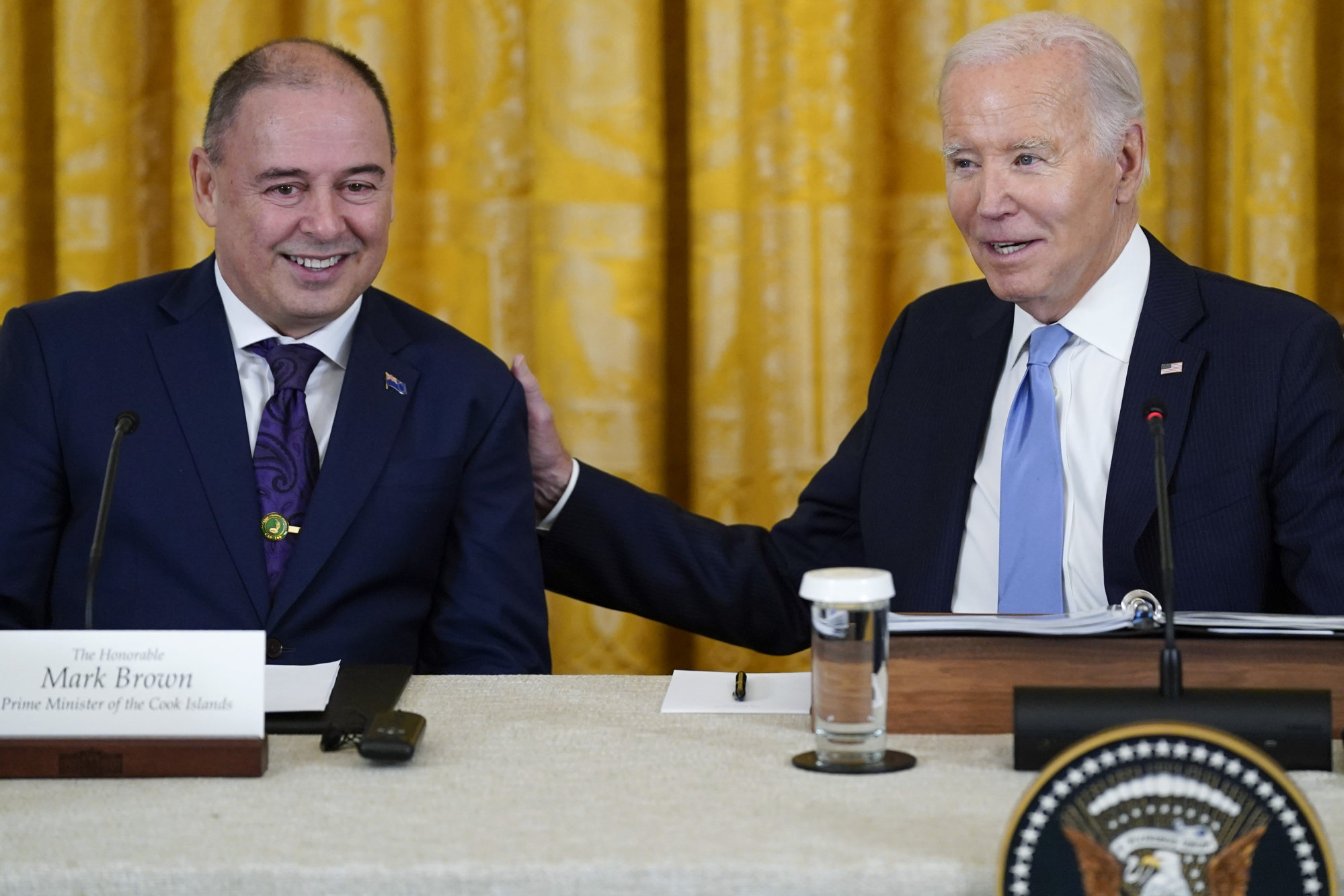
Joe Biden unveils Pacific nations aid, embassies at US-hosted summit as Solomon Islands PM sits out
- American leader extols ‘security, prosperity and dignity’ for Oceanic allies and partners in latest response to China’s decades-long inroads in region
- Nearly US$200 million in economic aid announced, but Washington’s possible government shutdown looms large
“One of the great opportunities for security, prosperity and dignity for all our people, no matter where they live … starts by building stronger partnerships with each other,” he said.

The US plans to open an embassy in Vanuatu in 2024 and stay involved in discussions regarding “our interest” in opening an embassy in Kiribati, according to a fact sheet the White House released soon after the meeting.
Washington was committed to holding the next Pacific nations summit in 2025 and intended to hold “biennial political engagements thereafter”, the document said.
But the opening of a US embassy in the Solomon Islands did little to ease tensions in Washington’s relations with Honiara.
He departed the US over the weekend in a move seen as a snub to Biden’s Pacific outreach.
Some analysts have noted that Washington’s latest overtures to the resource-rich region are still in the early stages compared to China, which has cultivated its ties with the nations for a longer period of time.

A lasting relationship “hinges upon mutual understanding and, when necessary, having conversations about difficult issues”, they said, adding that the main challenge was “sustaining this level of engagement and fulfilling the promises it has made, especially since so much funding hinges on congressional approval”.
The White House last year pledged more than US$800 million in a variety of programmes targeting Pacific island nations. However, Congress has yet to approved the funds.
Biden said his administration was working with Congress to invest US$40 million in infrastructure programmes and “launching US$200 million in new proposals”, believing that “strong growth begins with a strong infrastructure”.

Washington would send “the first US Coast Guard vessel solely dedicated to collaborate and train with Pacific island nations”, he said. In addition, the US would make a new investment to boost digital connectivity via undersea cables, the statement said.
Sitting next to Biden during Monday’s announcements, Cook Islands Prime Minister Mark Brown called for “genuine partnership” with the US.
As the region engaged with the US, “we do so with a clear understanding that our voice, our agency and our values are respected”, he said.
The summit comes just days before Washington’s long-standing strategic agreements with the Marshall Islands, Micronesia and Palau are set to expire.
The Compacts of Free Association are pacts that grant the US military access to each nation’s land, air and sea in exchange for financial help and permission for their citizens to legally live, work and go to school in the US.
Biden on Monday said the US had “signed a new economic agreement with Micronesia and Palau” and that his administration was “aiming to do the same for the Marshall Islands as well”. The pacts expire on Saturday.
A joint statement released by Biden and the Pacific island leaders on Monday described “the unique political relationship” between the US and the three Cofa countries as a “cornerstone of US-Pacific cooperation”.
Later on Monday, Pacific leaders met with US climate envoy John Kerry. In the evening, US Secretary of State Antony Blinken was to host the leaders for a dinner.

